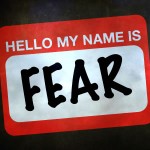 When we first get in a preparedness mindset, it seems overwhelming considering everything we need to actually do. I remember when I first started. There was all that food and water I needed to store. All that ammo as well. Of course I needed more guns to protect all my stuff. Then there’s the need for the biggest, baddest bug out bag available. A 3 day bag?? No way, I wanted a week! My vehicles needed prepped, and not just the basics. I wanted mobile bug out locations. I was excited and couldn’t wait to get it all done and be ready for a pandemic of Mayan zombie hurricanes! Finally I was awake to the possibility that things could go wrong and I didn’t have a second to spare.
When we first get in a preparedness mindset, it seems overwhelming considering everything we need to actually do. I remember when I first started. There was all that food and water I needed to store. All that ammo as well. Of course I needed more guns to protect all my stuff. Then there’s the need for the biggest, baddest bug out bag available. A 3 day bag?? No way, I wanted a week! My vehicles needed prepped, and not just the basics. I wanted mobile bug out locations. I was excited and couldn’t wait to get it all done and be ready for a pandemic of Mayan zombie hurricanes! Finally I was awake to the possibility that things could go wrong and I didn’t have a second to spare.
It didn’t take long before reality set in and the cost of all this stuff smacked me in the face. It was time to prioritize since I couldn’t just run out and buy everything I thought I needed. As time went on and I was slowly building up all of this stuff, I had an epiphany. All of this gear and all of these supplies were great for becoming self reliant, but self sufficiency should have been the goal. I’ve heard that self reliance is how long you can go without systems of support. Self sufficiency is how many systems of support you no longer need at all. A 30 day store of food means I can avoid the grocery store for a month. Learning how to hunt, fish, and garden means I can avoid the grocery store indefinitely. Of course, feeding myself 100% from the land would be hard in the best of times but if we can become 30% self sufficient in food, that is 30% less dependent we are on a system. My epiphany centered around the idea that with enough learning and skill development I could rely on the things around me to provide what I need rather than an expensive piece of gear.
If our grandparents knew we were having the conversation of self-reliance vs. self-sufficiency, they would surely laugh at us. They understood the importance of learning skills and learning to rely on themselves. 100 years ago, kids were put to work in the garden when they were old enough to walk. Developing life skills started as early as possible with past generations. These days our children are told that survival skills involve using a computer to do English homework. If they need anything, there is a product at Wal-Mart we can buy to take care of that need. I’m guilty of it myself, as I’m sure most of us are. How many of us can build a fire without matches, or even with a single match? Why should we bother when we can get a starter log and have instant fire! It only took me about 30 minutes to teach myself to get a fire going with a single match. Once I had that down, learning to do it with a fire steel took about 5 minutes. It sounds like it would be as easy as touching a lit match to some dry grass, but if you haven’t tried it you can’t know for sure.
A large aspect to learning a new skill is saving money. The more you know, the less you rely on someone else to provide a service or product. An example that comes to mind is dehydrating foods. That skill is pretty simple to master, but can save a lot of money on the grocery bill. It can also help you preserve foods that would otherwise go to waste. If we wanted to take the example to the extreme, we can, with a little ingenuity, bypass purchasing a $100 electric dehydrator and build a solar dehydrator from scrap wood and some metal screen. Now we have eliminated that purchase and our dependence on electricity to dehydrate food. The concepts behind solar dehydrators are simple, and designs abound on the internet. With an investment of a couple of hours, you can have a solar dehydrator up and running.
Most of the problems we have in our day to day lives and any we might face in a survival situation can be overcome with just a few basic skills. I could go on with a list of important skills until this article turned into a book, but that’s not my intent with this article. My point is to say that we should evaluate what skills we feel we lack then start to learn them. With all of the resources available to us these days, there is no reason we shouldn’t be able to learn anything we want. We live in a time when all the information in the world is at our fingertips. If you want to learn it, there is probably a video on Youtube to show you how. If not, someone has written an article or book about it. It’s amazing at how many skills I’ve learned this way. However, learning takes more than just watching a video or reading an article. You have to practice that new skill to become proficient. Too many times I’ve read about something and assumed I was an expert on the subject only to find out it was harder than it looked online. But with a little practice, I’ve figured out that I can learn just about any skill I want to.
Part of the reason I started my website and became a contributing columnist here at Radical Survivalism Webzine was to share new survival skills as I learn them. It not only lets me help others, it makes me really focus on learning a skill fully so I feel qualified to share it with others. Stay tuned for future articles where we will cover some basic but important skills. Some of the subjects might seem simple to some people, but remember that we all started somewhere. What seems simple to some of us might be a revelation to a new prepper.








Mindset is what will alwasy determine your survivial or failure! “Stuff” is only there to assist you in actions you have to take to ensure success.